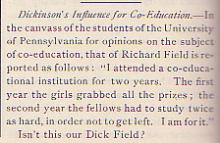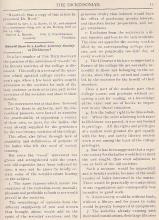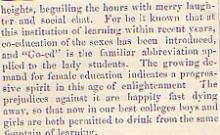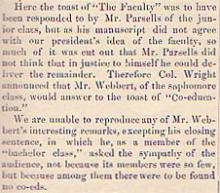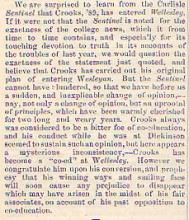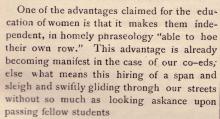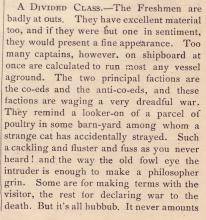Dickinson's Influence for Co-Education
The November 1889 issue of the Dickinsonian mentions briefly a fellow alumnus's comments on co-education. Richard Field had spoken out positively on his experiences with co-education at Dickinson. He stated that in his first year "the girls grabbed all the prizes" and in the second year "the fellows had to study twice as hard, in order not to get left. I am for it."

